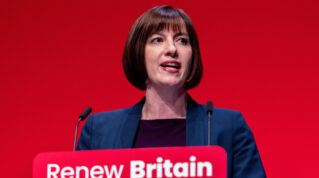A prominent think tank has urged government to let schools offer less generous pensions in exchange for more upfront pay, after a survey found one in six teachers would be keen.
The Education Policy Institute (EPI) has carried out a study into whether greater flexibility over pensions and renumeration could help address the recruitment and retention crisis.
It found a “substantial minority” of teachers would prioritise an immediate pay increase over a higher pension.
The EPI is now recommending the government should allow schools to offer alternative pension options, and that it should investigate the possibility of providing flexibility within the teachers’ pension scheme (TPS) to help boost recruitment and retention.
The study comes after the country’s biggest multi-academy trust, United Learning, revealed plans to allow teachers to boost their salaries in exchange for opting into a less generous pension scheme.
Teachers have to pay between 7.4 and 11.7 per cent in pension contributions to the teachers’ pension scheme (TPS). Employers must pay 28.6 per cent of the teacher’s salary.
Mixed reception for MAT’s pension plan
But United Learning, which runs 90 schools, said it would offer teachers the opportunity to choose an alternative pension scheme from 2025, alongside the TPS.
Teachers opting out of the TPS would be able to contribute either zero, five, or 10 per cent of their salary in a new defined contribution (DC) scheme. The trust would contribute at least 10 or 20 per cent.
Meanwhile money saved by the MAT on employer contributions would go towards bumping up pay for those on the alternative scheme. Starting salaries for those on the scheme would rise to £45,000 in London, and £38,000 elsewhere.
The move was slammed as “alarming” by unions, while the Institute for Fiscal Studies (IFS) previously said there is a “strong case” for rebalancing public sector remuneration “away from pensions and towards pay”.
Younger teachers more likely to back scheme
EPI’s new study, which surveyed nearly 6,000 teachers through Teacher Tapp on what they want from their compensation package, found 15 per cent of teachers would opt for a 10 per cent increase in their current salary, even if it meant losing 20 per cent of their retirement income.
Meanwhile almost 20 per cent of teachers in their 20s said they would opt for the scheme.

The EPI found teachers valued a 10 per cent increase in retirement income as much as they valued just a six per cent increase in their current salary.
James Zuccollo, director for school workforce at EPI, said: “The government needs to be open to innovations in teacher recruitment, and schemes such as United Learning’s proposal should be both welcomed and carefully studied.”
The EPI added that research must be carried out before any flexible scheme is implemented.
It acknowledged financial planning is “complex” and that “poor choices can have serious repercussions for teachers’ financial security in retirement”.
While the option to reduce pension contributions in exchange for a higher salary “may be attractive when a teacher is trying to save the deposit for a house, or struggling to make ends meet”, persistent under-saving for retirement “can have serious consequences”.
Daniel Kebede, general secretary of the National Education Union, said money to pay teachers properly “must come from additional government investment in our education service, not teachers sacrificing retirement benefits which would make the teaching profession less not more attractive.
“Pension provision, while often not considered when younger, is very important to ensure a retirement free from poverty and a reasonable standard of living. It should be encouraged, not discouraged to offset poor pay increases.”
United Learning did not provide an update on its pension plan.
















Pension is deferred salary. No one should ever have to choose between a fair pair rise and their entitlement to this.